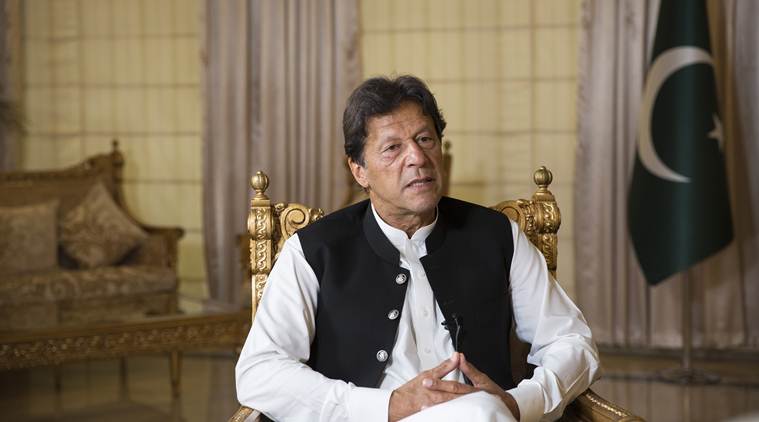Stay updated with the latest - Click here to follow us on Instagram
Pakistan downplays India’s decision not to invite Imran Khan for Modi’s swearing-in
Pakistan Foreign Minister Shah Mehmood Qureshi said, "Modi's "internal politics" does not permit him to extend an invitation to his Pakistani counterpart." He said, a meeting for the sake of dialogue to find a solution to the Kashmir issue, as well as Siachen and Sir Creek disputes, would have been a significant measure
 Despite initial reservations, Pakistan’s Prime Minister Imran Khan has been forced to seek help from the IMF to overcome his country’s grave economic crisis. (The New York Times)
Despite initial reservations, Pakistan’s Prime Minister Imran Khan has been forced to seek help from the IMF to overcome his country’s grave economic crisis. (The New York Times)
A day after leaders of BIMSTEC (Bay of Bengal Initiative for Multi-Sectoral Technical and Economic Cooperation) nations were invited for Prime Minister Narendra Modi’s swearing-in on Thursday, Pakistan tried to downplay India’s decision not to invite Prime Minister Imran Khan for the ceremony.
Pakistan Foreign Minister Shah Mehmood Qureshi told Dawn news, “”His (Prime Minister Modi’s) entire focus (during the election campaign) was on Pakistan-bashing. It was unwise to expect that he can get rid of this narrative (soon).”
He said a dialogue over the Kashmir issue and other disputes like Siachen and Sir Creek would represent a significant improvement in ties instead of an invitation to the swearing-in ceremony.
The BIMSTEC comprises Bangladesh, India, Myanmar, Sri Lanka, Thailand, Bhutan, and Nepal.
By inviting the leaders from BIMSTEC, instead of SAARC, Delhi has decided to keep Pakistan out of its engagement with the region. In May 2014, Pakistan Prime Minister Nawaz Sharif raised hopes for a new beginning in the bilateral relationship when he had attended Modi’s swearing-in ceremony. , but that did not go as planned. And SAARC was the casualty since the strain in India-Pakistan ties cast a shadow on the regional grouping.
On Imran Khan’s gesture to congratulate his Indian counterpart Modi for winning the elections and expressing his desire to work together, Qureshi said, “Relations between the countries were based on reciprocity and PM Khan had congratulated Mr Modi as a goodwill gesture.”
“Finding a new way (to resume dialogue) is also essential for them (India). If he (Modi) wants development of this region… the only way is to sit with Pakistan to find a solution.
“It is in the interest of Pakistan to defuse tensions… Pakistan did not create tension,” Qureshi added.
Tensions flared up between India and Pakistan after a suicide bomber of Pakistan-based Jaish-e-Muhammed (JeM) killed 40 CRPF personnel in Kashmir’s Pulwama district on February 14.
Amid mounting outrage, the Indian Air Force (IAF) carried out a counter-terror operation, hitting the biggest JeM training camp in Balakot, deep inside Pakistan on February 26. The next day, Pakistan Air Force (PAF) retaliated and downed a MiG-21 in aerial combat and captured IAF wing commander Abhinandan Varthaman, who was handed over to India. The PAF also lost a F-16 jet which was shot down by commander Vathaman.







